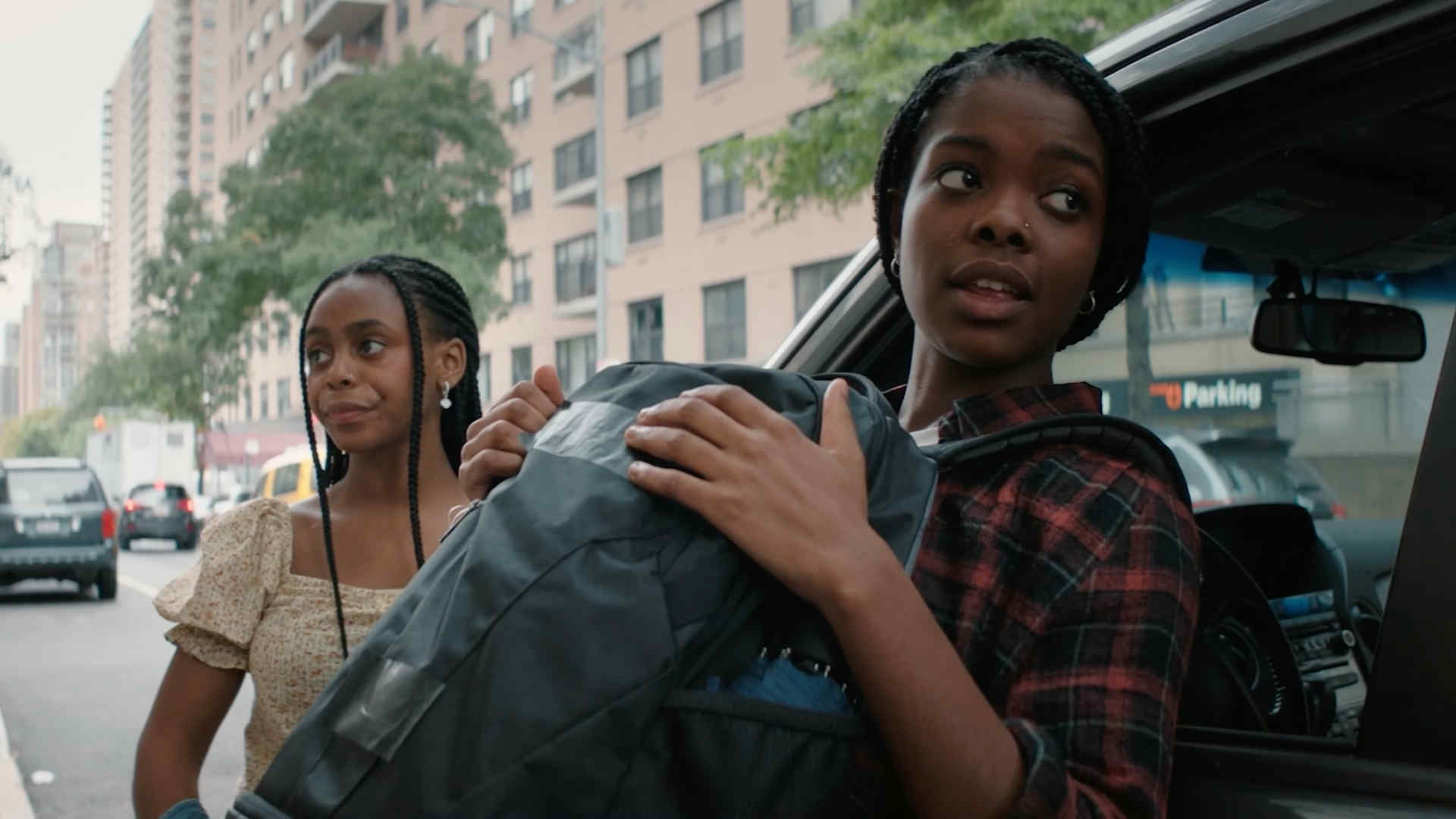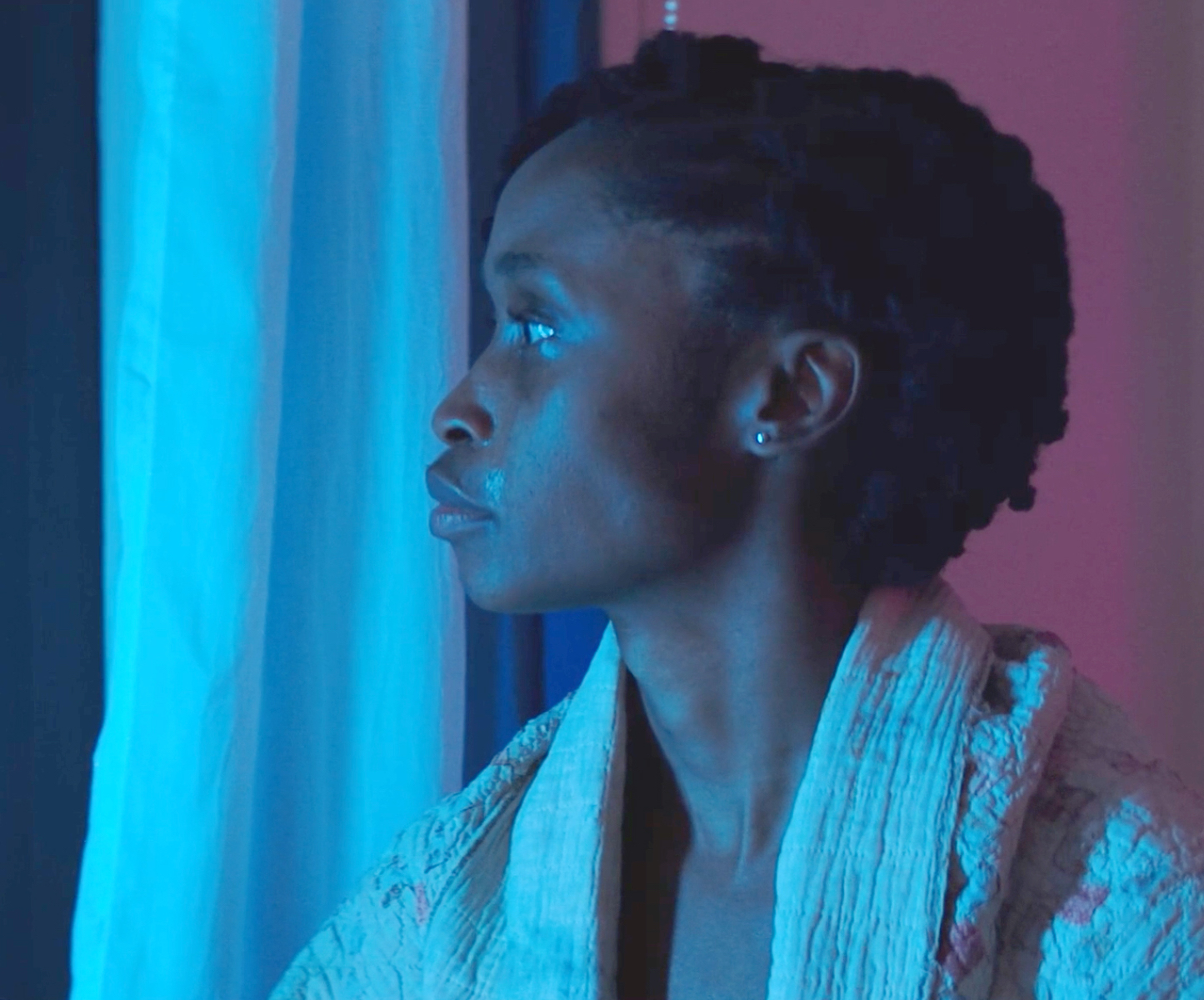
Q&A With Monica Raymund
Having graduated from Juilliard in 2008, Monica Raymund (Group 37) has spent 15 years in the industry working as an actor in television and film, all while developing her knowledge and skill set as a director. In the fall, she returned to Juilliard to direct Old Times, one of the short films created for this year’s fourth-year actors. Written by Enid Graham (Group 21; Playwrights ’22), Old Times tells the story of five young women meeting up for a weekend getaway at a beloved lake house as the restrictive circumstances of their world come into sharper view. Raymund, who spoke with Hannah Rubenstein, the Drama Division’s artistic programs assistant, said that working on this film gave her the chance to connect with the graduating actors, whose creative journeys she understands firsthand.
By Hannah Rubenstein
You started off as an acting student—tell us about your journey into directing.
After I graduated from Juilliard, in 2008, I got very lucky and got a job that put me on a television set pretty much right away. Having been thrown into the deep end, I had no choice but to learn on my feet, and I learned quickly that I was interested in being part of the collaboration that is filmmaking. I saw directors come in and work with me and other actors, and I wanted to be a part of that. I took it upon myself to hang out with the camera department and ask questions. Over the years, I basically curated my own film school knowledge. I shadowed directors on TV shows, made my first short film, and used that short film to get into a few festivals. And then I became more intentional about trying to be a director. In 2018, I got into the Female Forward program at NBC, which provided me with access to a lot of iconic directors. It allowed me to shadow a show for two to three episodes with a guarantee of directing one. That’s how I segued into professional directing work.

What were your initial thoughts about being asked to direct Old Times? And how did it feel to come back to Juilliard as a director?
The demand is really high for TV and film projects now, and I was excited to hear that Juilliard was introducing a real film experience to its actors. It was really cool to be a director for these acting students because I’m so familiar with their training. I can relate to where they are emotionally and psychologically in their fourth year: what’s exciting, what’s scary, what kind of relationship they’re having with their teachers right now, what they’ve gone through in years one through three. This was a unique opportunity to provide a very different experience for them, so I tried to bring that; I tried to direct them the way that I run a set on TV. It was important that they see how intense it can be and how fast things move and how many elements there are to a scene. Introducing what a schedule looks like, how many pages you shoot in a day, why we shoot in the order we do, all of that is important. I did my best to answer questions and provide context.
How was working with Old Times writer Enid Graham, who’s an alum of Juilliard’s acting and playwriting programs?
It was really unique because Enid and I are both working actors in TV and film, and she’s also a writer, and I’m also a director. Enid has a strong understanding of crafting the arc of a story. Her approach to writing caters to how the characters move through the language; she has a strong grasp on what is being said as much as what is not being said.
What did the Juilliard actors bring to the process that surprised you?
Their maturity and wisdom. They’re way more sophisticated than I was as a fourth-year. Some of them are in their early 20s and some are a little older. It blew my mind how in touch they were with their place in the world and as artists—they have points of view that are authentic to them. Working with them was a dream. They’re probably the most professional actors I’ve ever worked with. They came with an incredible work ethic and discipline, which was very clearly a reflection of Juilliard’s training. And they cared deeply about the scenes, the language, and the creative process.

For a lot of these actors, it was their first time on a film set. What could only be learned on set?
They know how to do their homework as actors. They understand circumstances, preoccupations, objectives, and conflicts. These are muscles that they’ve developed and that are extremely strong. The part they have to learn comes with experience. For example, having cameras pointing at you can be very confusing and distracting. Oftentimes these cameras will be held by people who are in your face while you’re doing an emotional scene, or people will interrupt you while you’re in the middle of a scene. The actors need to learn how to hit their mark and understand lens sizes. I encourage actors to ask the director of photography what kind of shot we’re in; you have to learn that when we’re in a wide shot, it means we’re seeing the world around you, we’re not just focused on you. That’s going to inform some of the performance.
How did your time at Juilliard inform your development as an artist, specifically as you’ve transitioned into directing?
I think the greatest asset that I have as a director is the fact that I’m an actor. Every single part of that comes from my experience at Juilliard. Juilliard taught me how to approach text. That’s a superpower for me as a director. I’m very familiar with the questions actors have when they try to break down text. I’m familiar with the vocabulary actors use and what does and doesn’t serve them, because I know what doesn’t serve me as an actor.
What are you working on these days?
I just wrapped a movie that I was acting in, not directing, called The Caine Mutiny Court-Martial, and I’m now in New York directing an episode of Power Book II: Ghost. Finally, I’m developing a TV series with a studio and production company. We’re trying to sell it, with me as the director of the pilot as well as the star of the show and as an executive producer. The goal has always been to act and direct at the same time.

Any final thoughts about Old Times and being back at Juilliard?
I’m so excited to see what the Old Times actors do with their careers. Some are already directors. A lot of them write. It took me a while to call myself a director, to feel comfortable saying, “I’m multihyphenated, I can do all of these things at once,” because there’s a lot of pushback when women try to assert themselves in that way. To see these women with the courage to see that about themselves already—I’m excited for them.
Hannah Rubenstein is the Drama Division’s artistic programs assistant
The Films
The Drama Division commissioned and produced three short films for the fourth-year actors.
Hide and Seek by Matthew Capodicasa (Playwrights ’20), directed by Tamar Glezerman
When Sasha goes to see her newly sober brother out in the suburbs, she and her friends get roped into a game of hide-and-seek and soon find themselves stranded.
Old Times by Enid Graham (Group 21; Playwrights ’22), directed by Monica Raymund (Group 37)
Five old friends decide to grab one more weekend together at a beloved lake house before it’s sold. But even at their carefree reunion, these women can’t escape the restricting circumstances of their lives.
On the Rocks by Cusi Cram (Playwrights ’01), directed by Derrick Sanders (associate director of the Drama Division)
After a patriarch’s untimely death, his family descends upon a gem shop and its unsuspecting staff to exact spiritual revenge. But nothing is quite as it seems. Secrets and magical subterfuge are revealed, paving the way for unexpected and hopeful alliances.